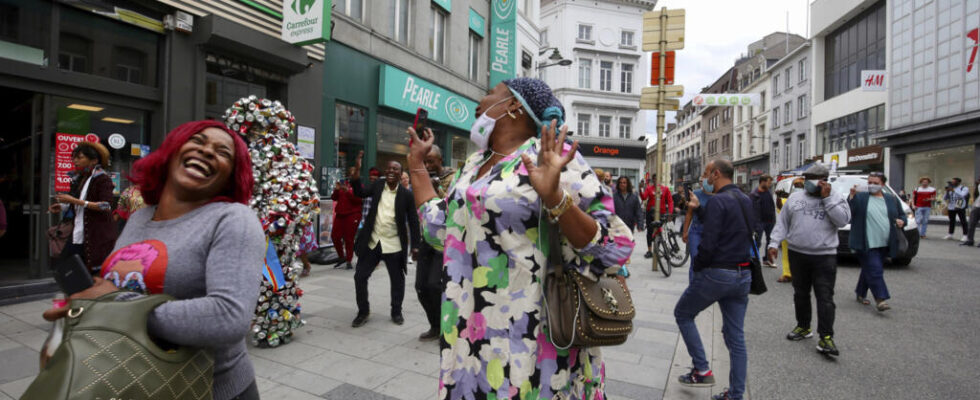In Belgium, the electoral lists for the June 9 elections give pride of place to candidates from African diasporas, particularly Moroccan and Congolese. This is especially true for regional and federal elections, but it is also true for European elections. One thing is certain, the Belgian political parties have taken up the issues of “diversity” and are determined to seek votes in the different communities.
From our correspondent in Brussels,
Matonge, the Congolese district of Brussels with its cosmetics stores, its grocery stores with stalls filled with plantains and yams and its hair salons. A few days before the European elections, the windows are covered with campaign posters, notably featuring candidates from the African diaspora.
Not enough to convince this mother of Congolese origin who came for a manicure. She is tired of politicians’ visits to the neighborhood. “ We saw Pierre Kompany, who in 2018 became the first black mayor in the history of Belgium, we saw the Minister of the Interior, we saw another minister whose name I have forgotten. We saw a lot of people come because they know that there is the Belgian-Congolese community here, that there are a lot of people and they hope that we will vote for them. I’m not looking for a black or a white person. I just want a candidate who delivers what they promise “, she explains.
A little further on, Ali is having lunch with friends. He also denounces the strategies of parties that he considers purely electoralist, with a diversity of facades: “ Their strategy for me is to promote Moroccan or Congolese people to attract votes. But the people they bring back, I tell you frankly: they are not at all immersed in the community. We don’t know them. We see them coming, we almost laugh about it. It’s a strategy, but they’re not ready yet. »
Attracting the diaspora electorate
In Belgium, community voting is a controversial notion stirred up on the right, about what is described as a “ Muslim vote », presented more to the left as an issue of representativeness and diversity. In any case, it has become a fact of the political game for around twenty years. Marco Martiniello, director of the Center for the Study of Ethnicity and Migration in Brussels: “ All the parties ultimately said to themselves: “there is an expansion of the electorate. There is a diasporic or minority electorate. And we will try to attract him to us”. And one of the ways of doing this was to put forward candidates from these populations. But behind it, there is still this belief that human beings will naturally vote for someone who looks like them. And I think that’s an assumption that’s not entirely true. Things are much more complicated than that. But it must still be taken into account, since it still plays a role in electoral choices and party strategies. »
But the researcher notes that these strategies are more implemented in local, regional and federal elections in Belgium. Which questions the importance given to the European level by the parties, but also by the candidates from the diasporas.
